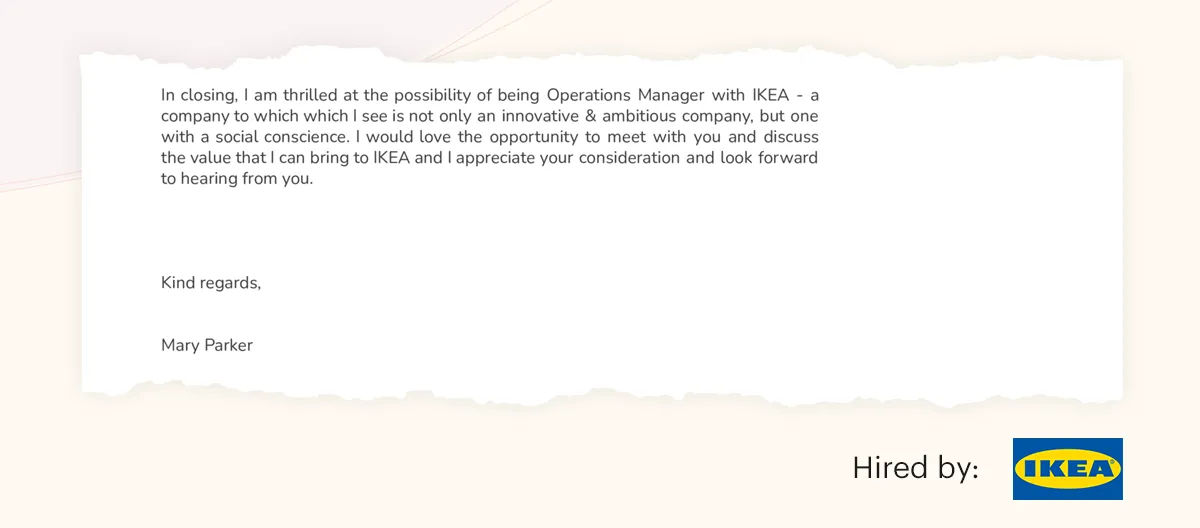Why Your Cover Letter Closing Matters
The closing of your cover letter is not just a formality, it’s a crucial opportunity to leave a lasting positive impression on the hiring manager. It’s your final chance to reinforce your value, express your enthusiasm, and compel the reader to take the next step. A well-crafted closing can be the difference between getting an interview and being overlooked. Think of it as your last chance to convince the hiring manager that you’re the perfect fit for the role. A strong close summarizes your key qualifications and reiterates your interest. Therefore, it is important to take your time crafting the perfect closing to leave a positive impact on the recruiter.
The Importance of a Strong Close
A strong close is essential because it reinforces your key selling points. It helps the hiring manager remember why you’re a good candidate and motivates them to take action. It provides a memorable and impactful finish that leaves the recruiter feeling positive about your application. A strong conclusion also signals that you’re a thoughtful, detail-oriented professional. The closing of a cover letter offers the final opportunity to persuade the reader of your value.
What a Weak Close Can Cost You

A weak closing can undermine the impact of your entire cover letter and hurt your chances of landing an interview. A poorly written closing might seem generic or indifferent, leaving the reader with a negative impression. A weak closing can be easily overlooked, meaning your application may not receive the consideration it deserves. It can damage your chances of getting the interview and, ultimately, the job. Avoid this by carefully considering the words and formatting of your closing, and ensure that you end it on a positive note.
Elements of a Great Cover Letter Closing
A great cover letter closing is a carefully constructed blend of gratitude, enthusiasm, and a clear call to action. It should leave no doubt in the reader’s mind that you’re the right person for the job. The closing should provide a concise summary of your qualifications, reiterate your interest in the position and clearly state what action you expect the reader to take. A well-crafted closing should be an enthusiastic, professional, and a concise statement of your intent. Always keep in mind to tailor your closing to each application.
Expressing Gratitude
Always thank the reader for their time and consideration. This simple act of courtesy sets a professional tone and demonstrates your respect for their efforts. It’s an excellent way to establish a positive connection with the recruiter. Expressing gratitude is a polite gesture that is expected in professional communication. Taking the time to thank the hiring manager will make your cover letter more personal.
Thanking the Reader for Their Time and Consideration
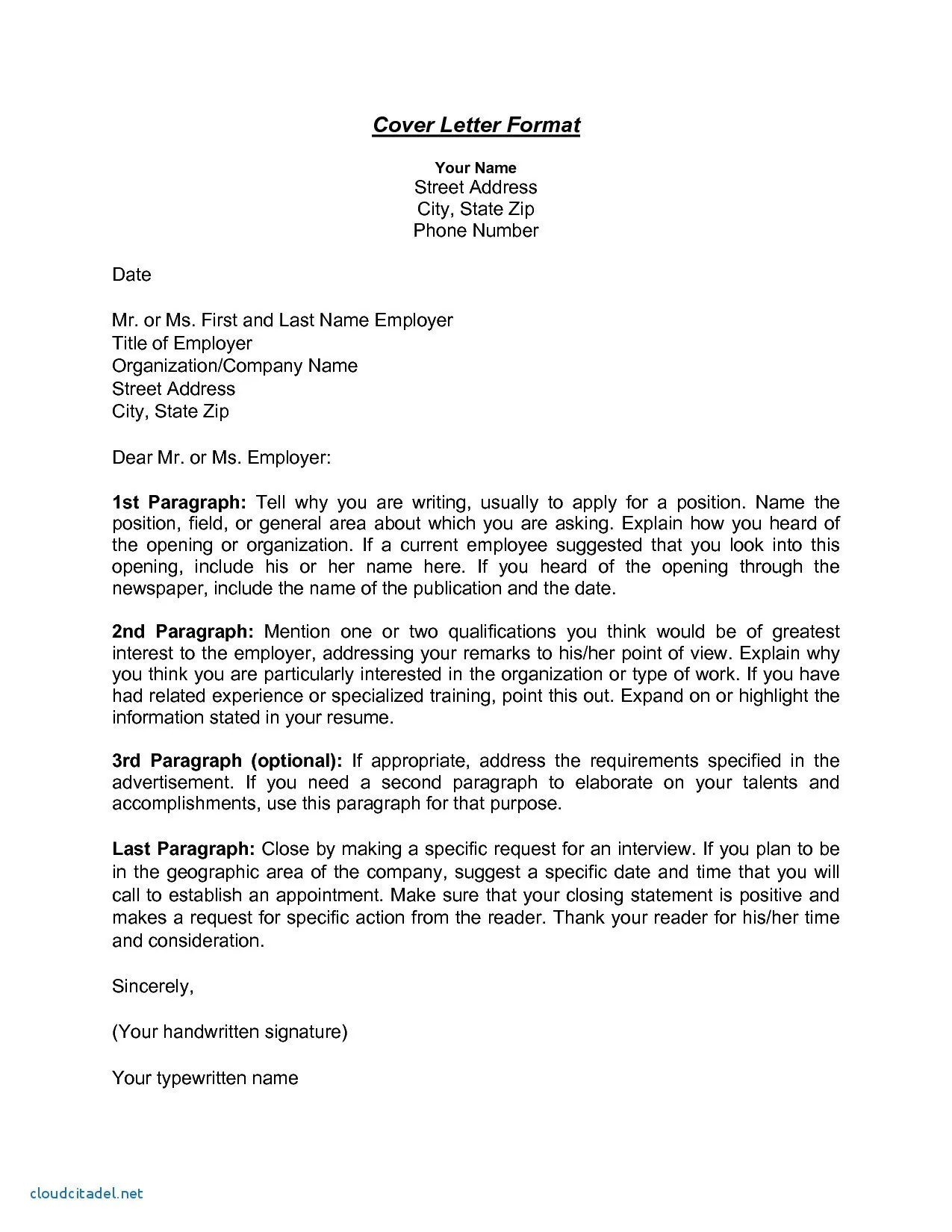
A simple “Thank you for your time and consideration” goes a long way. It shows you value the reader’s effort in reviewing your application. This demonstrates good manners and respect for the hiring manager’s time. It sets a positive tone that improves your chances of receiving a response. Be sure to keep the closing brief and straightforward. Remember that a simple “Thank you” can be very effective.
Restating Your Interest
Reiterate your interest in the position and the company. This is a final opportunity to express your genuine enthusiasm for the role. Reinforce your desire to be a part of the team. Reminding the hiring manager of your interest ensures you stay top of mind. Showing eagerness helps differentiate you from other candidates. The closing is your last chance to express your excitement and keep the hiring manager engaged.
Clearly Reiterate Your Enthusiasm for the Role
Use phrases like “I am very excited about this opportunity” or “I am eager to learn more about this role.” Make your enthusiasm palpable through your word choice. Avoid generic statements, and instead, specify what aspects of the role or company excite you the most. This shows the hiring manager that you’ve done your research and are genuinely interested in the position. Be concise and express your excitement genuinely. Doing so ensures your cover letter leaves a memorable impression.
Highlighting Key Qualifications
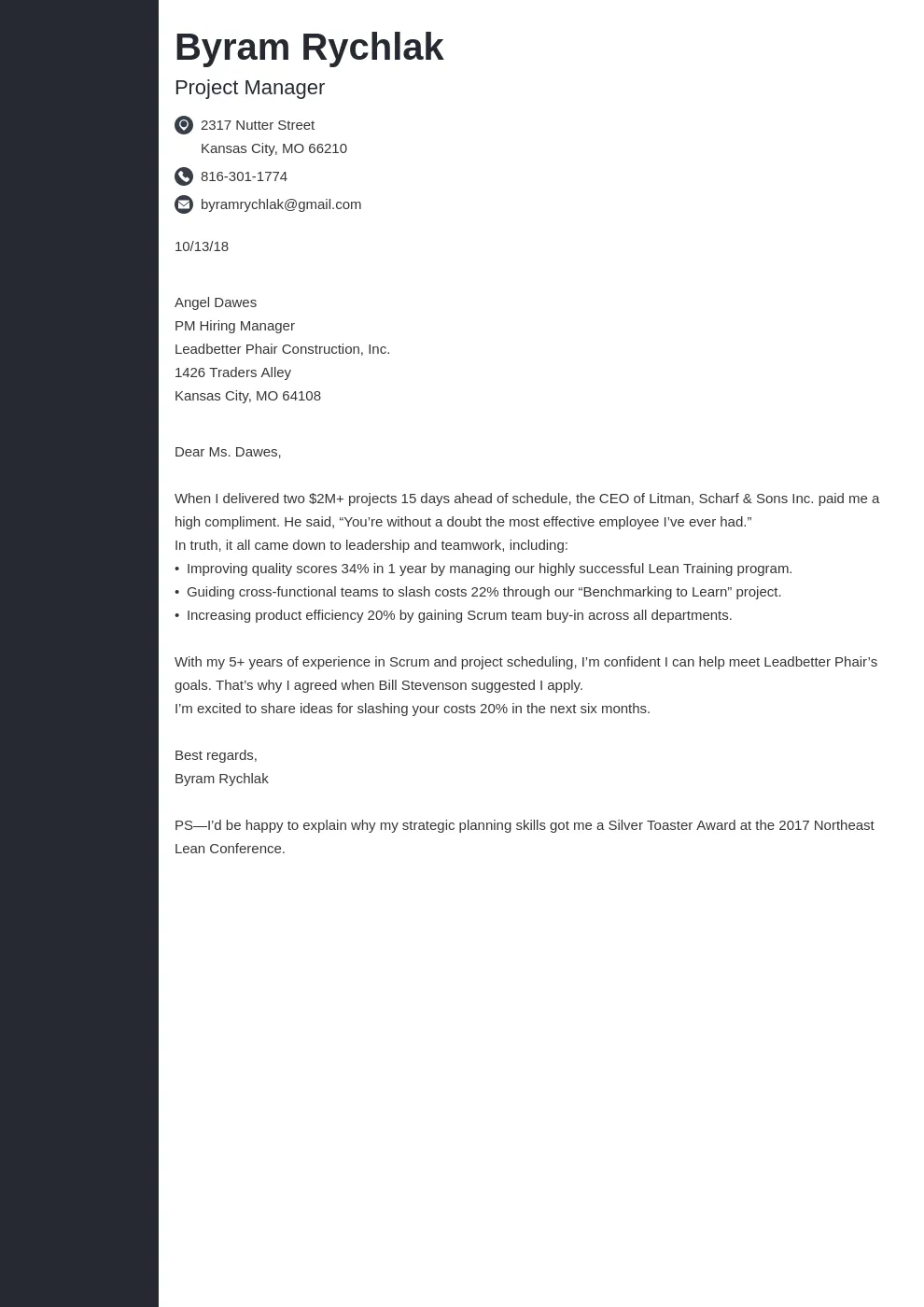
Briefly summarize the key qualifications that make you an ideal candidate. This is a great way to remind the reader of your most relevant skills and experience. Focus on the achievements that align with the job description. This reinforces why you are a good fit and increases your chances of an interview. Mentioning key accomplishments reinforces your value to the organization.
Summarizing Your Value Proposition
Instead of just listing skills, explain how you can bring value to the company. For instance, highlight how your skills could lead to a specific outcome, such as “I am confident my experience in project management will help streamline your operations.” This statement offers value. Focus on what the company can gain from hiring you. Be clear about your value to the organization.
Call to Action
A clear call to action is a crucial part of a great cover letter closing. This tells the reader exactly what you want them to do next. It should be specific and easy to follow, prompting the hiring manager to take action. It shows confidence and guides the recruiter through the next steps. A clear call to action helps move your application along.
Requesting an Interview
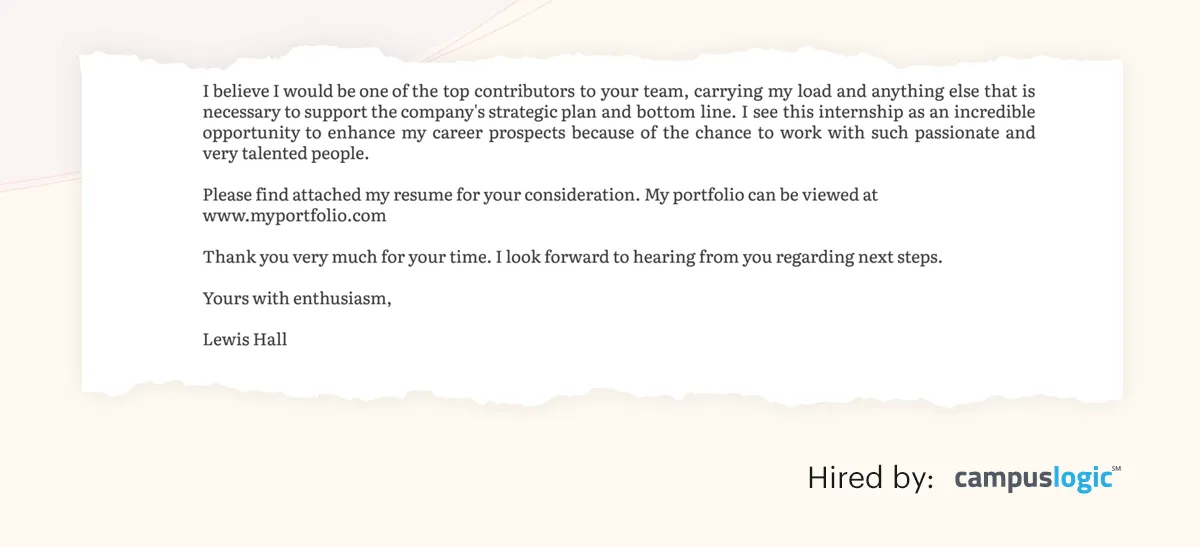
The most common call to action is a request for an interview. It’s direct and professional, and clearly states your intention. For example, “I am available for an interview at your earliest convenience.” This phrase guides the reader. Ensure the invitation to interview is included in your closing. It’s a confident and straightforward way to express your interest. Be proactive and tell the reader that you want an interview.
Providing Contact Information
Ensure your contact information is readily available. This makes it easy for the hiring manager to reach you. Include your phone number and email address, and make sure they are up-to-date. It gives the hiring manager the necessary details to contact you. Double-check all contact details for accuracy. Making it easy for the hiring manager to contact you ensures a smooth process.
Formatting Your Closing
The formatting of your closing reflects your professionalism and attention to detail. A well-formatted closing is easy to read and leaves a favorable impression. Proper formatting shows that you are careful and professional. Pay attention to your overall presentation. Proper formatting is as important as the content of the letter itself.
Formal and Professional Tone
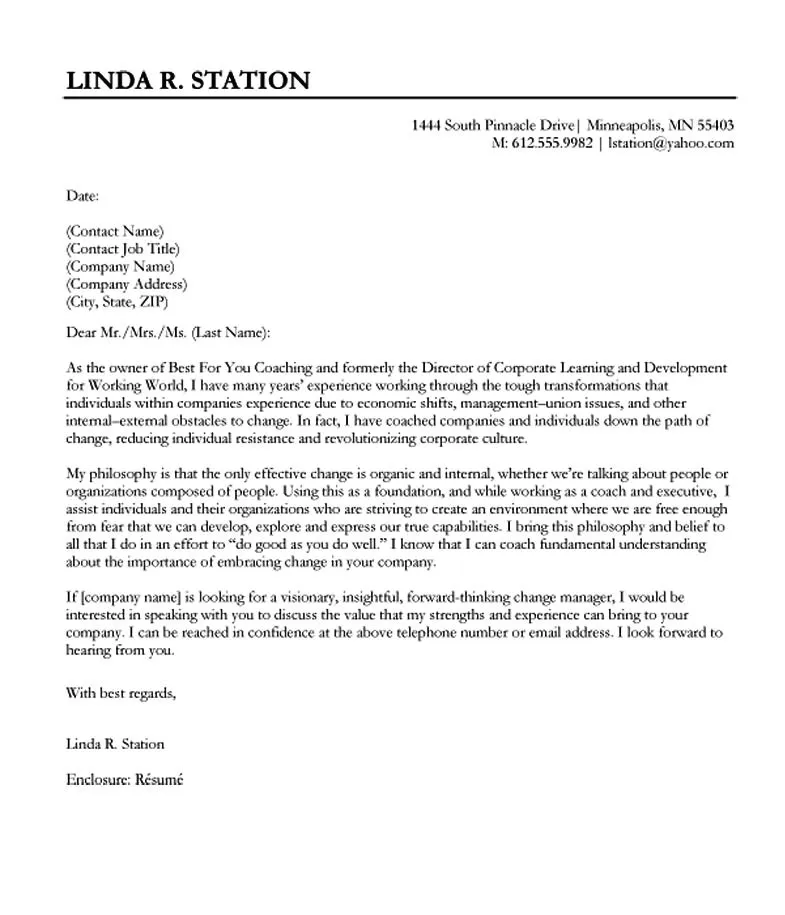
Maintain a formal and professional tone throughout your cover letter, including the closing. Avoid slang, overly casual language, or emotional statements. Keep it professional and respectful. Stick to language that is suitable for a formal environment. Use professional language to show respect.
Appropriate Salutations
Use appropriate salutations, such as “Sincerely,” “Best regards,” or “Yours sincerely.” Choose a salutation that fits the level of formality you have maintained throughout the letter. These phrases signal respect for the reader. The right salutation enhances the overall professional tone.
Common Mistakes to Avoid in Your Closing
Several common mistakes can undermine your cover letter closing and should be avoided. These mistakes can weaken your closing and make it less effective. Be aware of these common pitfalls to make sure your closing is polished and professional. Avoiding these errors increases your chances of securing an interview.
Using Clichés and Overused Phrases
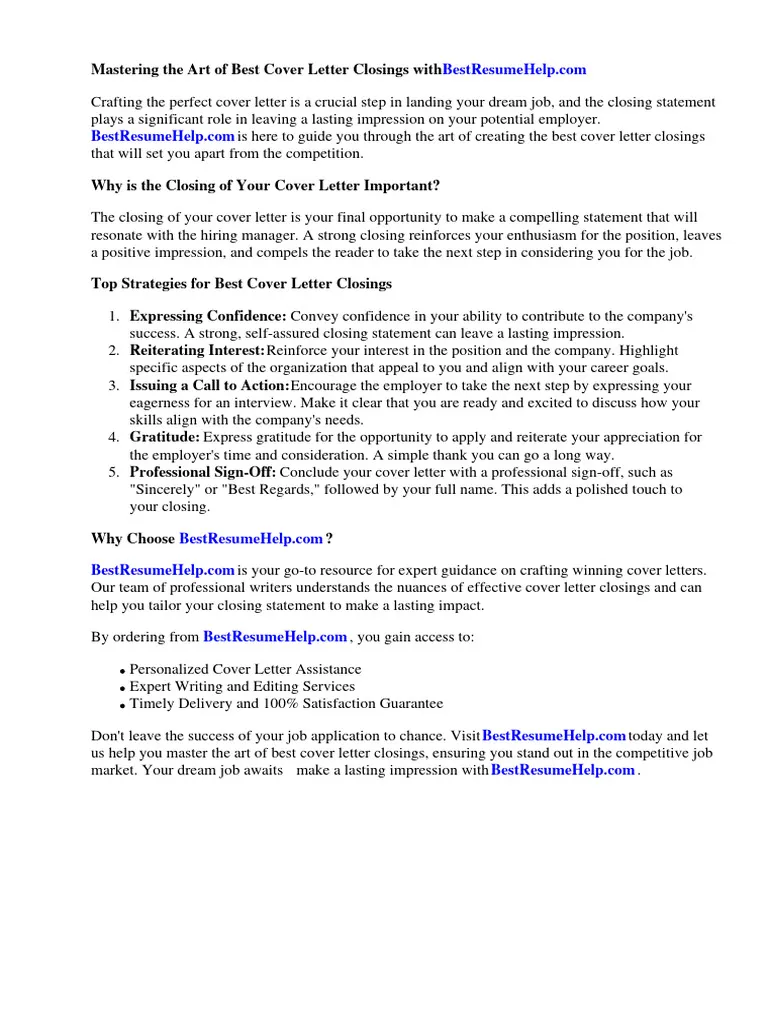
Avoid using clichés like “I look forward to hearing from you” or “Thank you for your consideration.” These phrases are overused and can make your cover letter sound generic. Instead, choose phrases that are more personal and unique to your situation. Using such phrases makes your cover letter less memorable. Strive to make your closing stand out.
Being Too Casual or Informal
Maintain a professional tone. Avoid using slang, abbreviations, or overly familiar language. This will undermine your credibility. Ensure you are being respectful and professional. Keep your closing appropriate for a business context. Avoid informality at all costs.
Ignoring Grammar and Spelling
Carefully proofread your closing for grammar and spelling errors. Typos and errors detract from your professionalism and can be a sign of carelessness. Always proofread your closing. Make sure your closing is free of any mistakes. Proofread your document to avoid making mistakes.
Examples of Effective Cover Letter Closings
Reviewing examples of effective closings can help you craft your own. Understanding different approaches can give you inspiration. Knowing how to write an effective closing is vital for getting an interview. Below are a few examples to inspire your own cover letter’s conclusion.
Example 1: For a Job Application
“Thank you for considering my application. I am excited about the opportunity to contribute my project management skills to your team. I am available for an interview at your earliest convenience. I look forward to hearing from you soon. Sincerely, [Your Name]” This is a strong example that shows enthusiasm and encourages further communication.
Example 2: For a Networking Introduction
“Thank you for your time. I am eager to learn more about your experience in the marketing industry. I am confident that my skills align with your expertise. Please feel free to contact me to discuss how I can further contribute to your network. Best regards, [Your Name]” This type of closing is helpful to connect with a professional.
Example 3: For a Speculative Application
“Thank you for considering my application. I am very interested in the possibility of working with [Company Name]. I am confident that my skills in communication and customer service would be an asset to your company. Please let me know if you have any questions. Sincerely, [Your Name]”
Final Thoughts
The closing of your cover letter is the last impression you will make on the hiring manager, and it can be a defining factor in whether you receive an interview. A well-crafted closing shows enthusiasm, expresses gratitude, and presents a clear call to action. By avoiding common mistakes and using best practices, you can create a closing that strengthens your application and increases your chances of securing the job. Always take your time crafting your perfect closing to leave a positive impact on the hiring manager.
Key Takeaways
- Always express gratitude.
- Reiterate your interest and enthusiasm.
- Summarize your key qualifications and value proposition.
- Include a clear call to action.
- Maintain a formal and professional tone.
- Proofread your closing carefully to ensure there are no mistakes.
